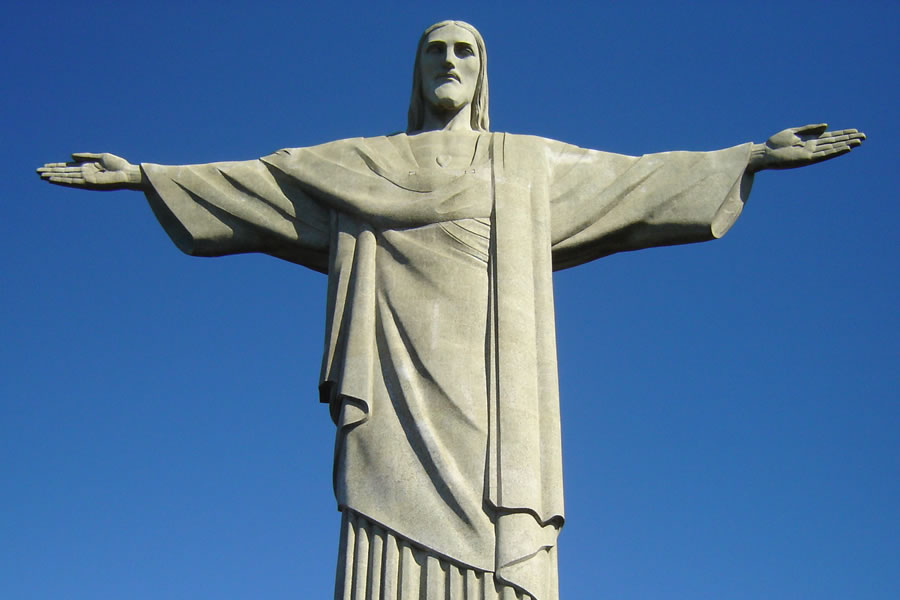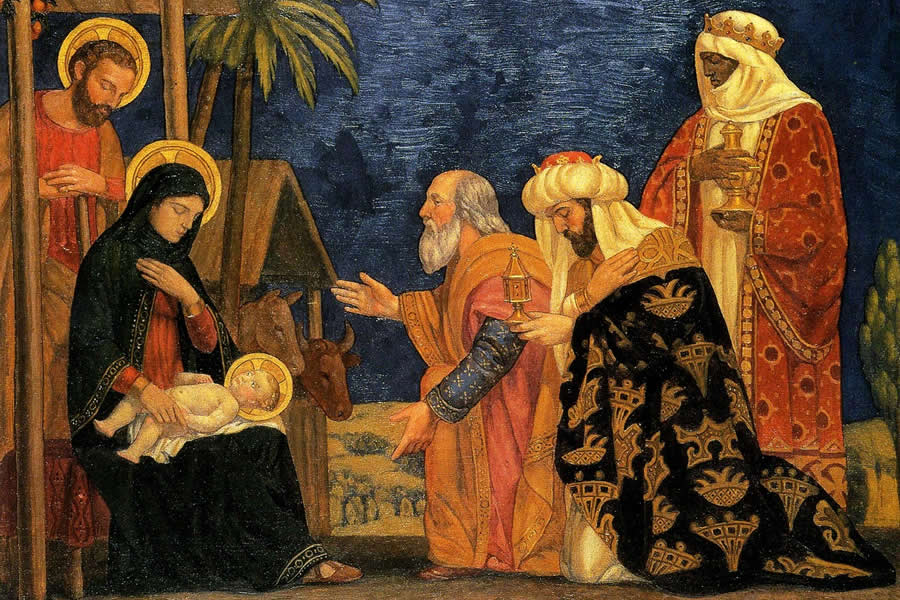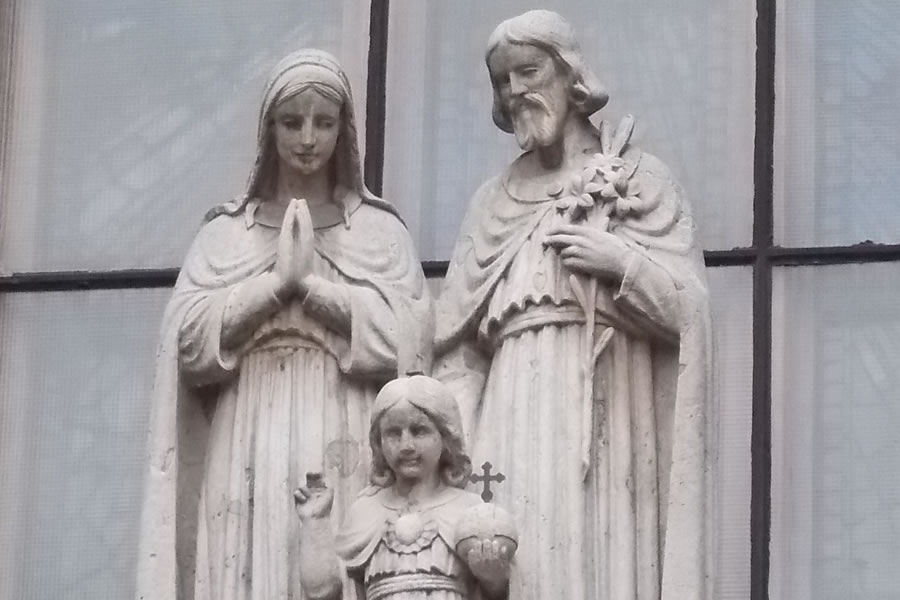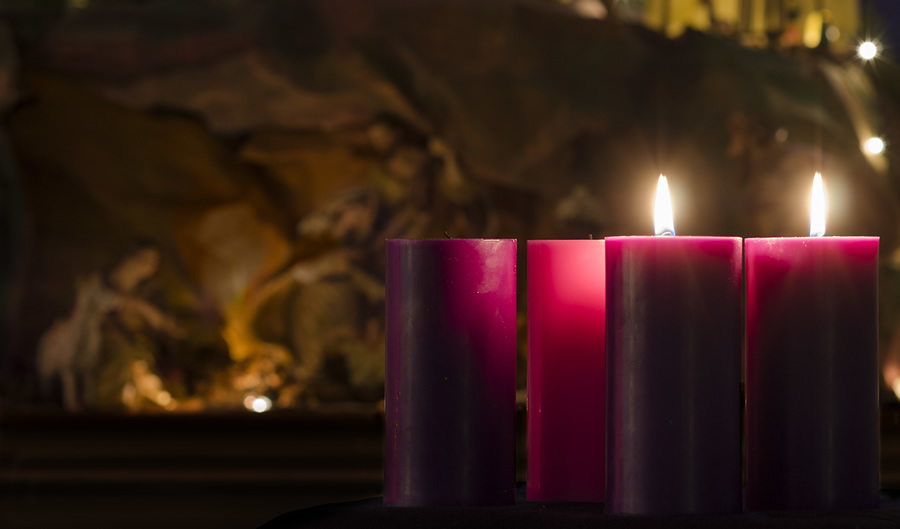
Heaven and Earth Meet
02-26-2021Pastoral ReflectionsRev. Brian F. ManningSometimes in our lives we have a critical moment when we discover or come to understand something that gives us dramatic insight or purpose in life. This moment does not happen as often as the cinema or autobiographies portray, but we do indeed at times have this flash of insight or knowledge that profoundly influences our life. The scripture of this weekend shows examples of this: Abraham on Mount Moriah and also Jesus with his disciples on Mount Tabor.
READ MORE
God Is Committed to Us Forever
02-21-2021Pastoral ReflectionsRev. Brian F. ManningOur Old Testament passage is the first reading during the Sundays of Lent and it holds a great deal of meaning for us. We do not start the reading at the very beginning of the story of Noah, but much later when all the trouble and travail have passed and the flood waters have gone back down. Indeed, the beautiful multi-colored rainbow is now showing forth across the sky for one and all to see. Earth and heaven are connected by this beautiful display of light that tells us God is with us and He is committed to us forever. What a great thought to hold in mind as we launch out and begin the great Season of Lent.
READ MORE
Do Not be Frozen in Fear
02-14-2021Pastoral ReflectionsRev. Brian F. ManningBecause we think our modern society is so sophisticated and advanced, when we hear the stories of various events in the early times of the Israelites or other ancient people, wetend to view them with a judgmental attitude. Certainly the great fear that the ancient Israelites possessed about leprosy and other skin diseases gives us this opportunity to feel so very superior to them.
READ MORE
Stay Connected to God
02-07-2021Pastoral ReflectionsRev. Brian F. ManningOur first reading comes from one of the most powerful and meaningful books of the Bible: the Book of Job. This book is about the story of the man who had everything, then he had nothing and all the sad happenings that went on in-between. There he is: Job sitting on a dung heap and he has to listen to speeches from his well-intentioned but nonstop talking friends. Because they cannot understand what happened, they think he should not either. Our passage for this weekend gives a plain view of life from Job. Simply put, he sees life as hard.
READ MORE
The Power of Christ
01-31-2021Pastoral ReflectionsRev. Brian F. ManningIt is quite striking in today's Gospel passage how the demon knew exactly who Jesus was. This shrieking cry from the demon is dramatic and clear in its meaning. To hear "I know who you are" about Jesus from a creature of the darkness and evil knocks us off our seats. This demon, which symbolizes for us all that is evil and dark, is admitting that Jesus is the ultimate threat. The basic truth is that the power and good of Christ is greater than darkness or evil. And this is clear to the powers of evil. Sadly, maybe not so much to us.
READ MORE
Called to Serve
01-24-2021Pastoral ReflectionsFr. BrianPastoral Reflections: Our Old Testament and Gospel readings both tell us about people who instantly accepted the invitation of God. The people of Nineveh responded immediately to Jonah and the disciples accepted the invitation of Jesus right on the spot. Clearly, these readings have a major point for us. The people of Nineveh respond immediately and the disciples, both groups, abandon their work of fishing on the spot. The major point of this is that God expects the same from us. We are expected to seize the Call of God and respond forthwith. The response is supposed to be "right now!"—not: "When I am ready."
Making such a response to the call of God demands us to have faith, but also demands us to be free. Saint Paul in the second reading is advising us that we cannot let the stuff of our life get in the way of responding to God's call. When what is in our life keeps us from hearing and responding to God, we are not "free." We are weighed down or overwhelmed or stuck behind a wall. We must have and use our stuff of life for God.
READ MORE
Personal and Communal Faith
01-17-2021Pastoral ReflectionsFr. BrianThe major message of the readings this weekend is that the call of God is actually directed to each of us and each of us must respond. We must remember and appreciate that each of us is called, but none of us is called alone. We have faith that is personal, but also communal.
In reading the Old Testament with its many stories of people called by God, we learn that God summoned the leaders of Israel in both dramatic and quiet ways. Moses was called by the voice of God from out of a burning bush; the prophet Isaiah discovered his vocation in a fiery vision in the temple. In our first reading, we learn of a different invitation from God, one that is most likely similar to our own. We must remember that Hannah, Samuel's mother, was unceasingly pleading with God for a son and God answered her with the child Samuel. Our reading for this weekend begins with the young man Samuel in the temple when he hears a voice calling out. Eventually, Samuel does come to understand he is being called by God. He then listens, speaks, and then finally he obeys. Samuel is the first prophet during the time of the monarchy.
READ MORE
We share the divinity of Jesus
01-10-2021Pastoral ReflectionsFr. BrianI am certain that we all are unaware that in the earliest centuries of Church life the Feast of the Baptism of the Lord was celebrated as the most important manifestation of God's saving power. We all tend to think that Christmas was the greatest and most important feast, or perhaps it was Easter and the Feast of the Resurrection. This simply is not so. This feast of the Baptism of the Lord stood at a very special point in being significant. It is clearly obvious because all three of the synoptic gospels, Matthew, Mark, and Luke have the Baptism of the Lord as the central beginning event of their story. Perhaps some also add in the stories of the early years of Je-sus, but they are not central to the theme and message of the Gospels. Even John's Gospel, "the very different one," also makes the Baptism of Jesus a most important and watershed event. Interestingly Mark in his Gospel does not directly tell us of the Baptism but instead tells us that the heavens are torn open and that an astounding message is given. Mark clearly wants us to recognize the great significance of this event. He wants us to know that God has answered the deep yearning and searching of Israel for a Messiah. Indeed, does he not tell us that Jesus himself is "the favored one"?
READ MORE
Christ our Light
01-03-2021Pastoral ReflectionsFr. BrianDuring the Fourth Century the Feast of the Epiphany developed in the Latin Rite (more commonly called by us the "Catholic Church") from a Celebration in the Holy Land that began much, much earlier in time. It took place on January 5 in the darkness of evening and went through the sunlight of the day of January 6th. The Western Church, the Roman Church, celebrated Christmas on December 25th, but adopted over time this custom of celebrating Christmas on January 6th. Both feasts had the theme of "Light coming into the world." Soon the West called their second celebration "Little Christmas" and titled it "the Feast of Epiphany," meaning appearance or manifestation. Christmas in a sense celebrates the winter solstice and "Little Christmas" celebrates following the light of the brightest star in the sky. Both mean and celebrate the great coming of divine light into our world. There is in many ways a twelve day "Festival of Lights" celebrated in our Tradition.
In the story of the Epiphany is the appearance of what we now say are three Kings, or Magi. Various stories throughout the early church had as many as 12 Kings or Magi. Adding camels and dromedaries and royalty from far off mysterious lands who bring exotic gifts creates a wondrous and dreamy story of Christmas for everyone. It is interesting that Matthew is the only Gospel writer who tells us this story. We believe he does so because this story has elements that allow the early Jewish converts to Christianity to connect the Hebrew Scriptures with the story of Jesus Christ.
READ MORE
A Real and Holy Family
12-27-2020Pastoral ReflectionsFr. BrianHave you noticed as you look at TV, the print media, and also on the social platforms that we always see these absolutely perfect photos and advertisements of stunningly perfect families in perfectly decorated and spotless homes with just the right amount of snow seen through the picture window behind them? We know that we can never have our home and family photographed liked that perfect family. Instead, we are blessed by the invitation from our God to believe and follow Him and that this invitation is to be a family of compassion and understanding, of kindness and forgiveness, not a family of visual perfection.
In our Gospel reading for today we hear the very ordinary story of an ordinary set of new parents who are trying to take their religious responsibilities seriously. They go off to the Temple to fulfill their observance of the holy law of Israel. When they get to the Temple, they bump into Anna and Simeon, both of whom reveal to us an insight into Luke's reason for including this particular story in his Gospel.
READ MORE
God Is in Charge
12-20-2020Pastoral ReflectionsFr. BrianOur first scripture passage this weekend tells a most significant story about King David who was the great power in the entire world, at least so he and others thought. He had an impressive military career, which had resulted in a peaceful time for Israel with prosperity for its people. He was at the very pinnacle of success. He had placed the Ark of the Covenant in Jerusalem, the capital city, and now in this passage spoke out loud about how he would like to do something special for God. He decides he needs to build God a worthy temple.
But this is not what God wanted. According to the prophet Nathan, David had gotten his and God's roles confused. God is to care for David in ways greater than David can dream. If we were to count the times, we would learn that God told David that God is the source of strength, triumph, and success. David does not realize that all power comes from God, not a human person such as a mere king. Rather than David building a "house" for God, God will instead give Da-vid a "house," a kingdom that will stand firm forever.
READ MORE
Look Closely
12-13-2020Pastoral ReflectionsFr. Brian ManningOften when looking at a landscape picture, whether it is in traditional oil or watercolor paint from or now an acrylic or photographic form, we often see a rather pleasant or edifying scene, but when we look much more closely we can discover and recognize all sorts of meaning because of secret symbolic elements in the scene. What you see is often more than what you see if you really observe closely.
The scripture at our Mass on this Third Sunday of Advent also invites us to open our eyes to look much more closely and discover what is really there. Once we have seen what we are asked to discover, it becomes ever so obvious. We may wonder why we did not see it all immediately. We are to see in the vignettes of today's scripture, that although Jesus has come in his incarnation Birth and that He will return again at the end of time, He is also here among us now in the lives of people round about us.
READ MORE
Get Ready
12-06-2020Pastoral ReflectionsFr. Brian ManningOn this Second Sunday in Advent, the scripture readings at Mass are telling us something very, very important. The message is clear: the soon to be celebrated Feast of Christmas is a celebration that acknowledges that the story of Christ has not come to an end, in that God's love, commitment, and concern for us are no less evident or real than they were over two thousand years ago. The message of the scripture at Mass is very obvious when we read or hear the words and then ponder them. Get ready in the coming weeks for the Birth of Jesus Christ.
we again bear proclaimed in our church in the first reading's powerful words recorded by Isaiah that our mighty and kindly shepherd is coming and we need to ready ourselves for this long-awaited event. As it is directed in this scripture; we must straighten out our crookedness, smooth our rough edges, broaden our narrow-mindedness, and most especially fill in our gaps with grace. Certainly, at that new point, we will be ready to see and receive "the glory of the lord."
READ MORE